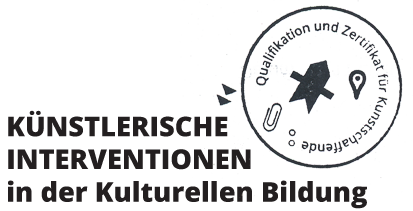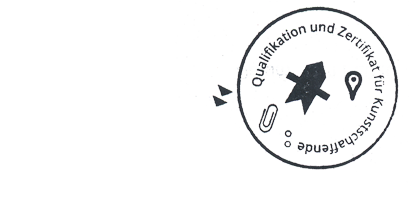


Which topic turns up again and again in your artistic activities?
Playing music, listening to music, moving along with music: at a cognitive, motor, emotional and affective level. How can reality be experienced aesthetically, holistically and multi-dimensionally with the aid of music? Is (inter-) actively, intuitively making music together by improvising the key to all this? How can I process an artistic field so that creative forces can grow and act in it? I am seeking the interpenetration of art and everyday life, the aesthetic perspective on everyday aspects, a familiar, everyday view of music – beyond virtuosity and exclusivity. All individuals are musical, are touched by music in their own way, everywhere, and a whole life long.
What do you seek to achieve with your arts education activities?
Especially in the rural regions, which are usually underserved with culture, and where age-appropriate cultural events are usually lacking, I seek to stimulate and activate people in their third and fourth stages of life with aesthetic, experience- and perception-enhancing music projects. Via the encounter with themselves and music (instrument, voice, dancing), identity, finding one’s self, developing one’s abilities, self-efficacy, acquiring insights and self-realisation (“finding one’s own tone”), learning and further development become possible. Old people’s quality of life can be maintained and improved with musical means.
What, in your view, is the essence of an artistic intervention in arts education?
I try to create an aesthetic space in a familiar, calming and stimulating atmosphere in which art can emerge and develop. In this space, I accompany people in recalling moments in life, familiar aspects – a song, a piece of music, an instrument – or also sensations such as happiness, grief, love. Familiar aspects are put into a new context during a dialogical process out of which new forms emerge. For example, the protest song “Bella ciao” is newly texted together and placed in a personal context or rewritten instrumentally as a mourning blues. Here, the actors experience new experiential environments and self-efficacy – in the music, they perceive their own creative strength.